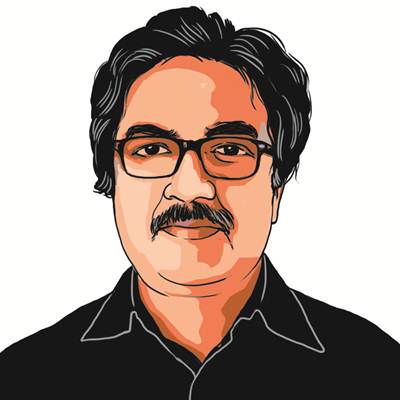Opinion Separate the grain and the chaff
What ideologically driven criticism,from the left and the right,misses about the food security bill
What ideologically driven criticism,from the left and the right,misses about the food security bill
The food security bill,now tabled in Parliament,has been subjected to a barrage of ideological criticism. Interestingly,at this late stage,critics from the right are raising questions not just about practical concerns of implementability,but also more fundamental questions about the need for it. While the National Advisory Council is often criticised for its leanings,the ideological nature of this attack has gone unchallenged. While the NAC displayed its dogma by expressing distrust towards any market-based alternatives like cash transfers to deliver the food subsidy,the right seems to be in denial about the extent and nature of Indian poverty.
Let us examine the main points of the criticism. First,the affordability: the bill will create a need for additional production of additional 20-25 million tonnes of foodgrain and if we take the investment cost of making this into account,the bill is simply unaffordable. This argument is based on an unfounded assumption about the relationship between income and foodgrain consumption. Recently Angus Deaton and Jean Dreze have shown that an increase in the income of the poor in India has not translated into a significant increase in consumption of foodgrain. There is no reason to believe,therefore,that the bill would cause a significant increase in foodgrain demand.
But even if one were to believe that the bill would increase the demand for food,boosting foodgrain productivity would in any case be the right policy for various reasons. First,a significant proportion of Indias poor are engaged in foodgrain cultivation and they would gain from such policy. Clearly,they would also gain as consumers if foodgrain prices declined through an increase in supply. We need to invest in agriculture whether or not the bill passes,if we expect the incomes of the poor to rise. And if we are concerned about inflation in the short run,before the investment-led supply responds to the additional demand triggered by the bill,the answer lies in selling on the open market the ever-rising foodgrain stocks in FCI godowns to bring the prices down.
Consider the second objection to the bill. Some believe that subsidised foodgrain will make people lazy. Who will work if the food is given so cheap? Before imagining such an effect of the bill,one must look at the net food subsidy transfer in rupee terms. At the current food grain prices the average subsidy transfer by the bill will be just Rs 3 per person per day. Is this big enough to make people lazy? We should not be surprised if tomorrow,similar arguments are made against free elementary education and subsidised public health. In fact,the food subsidy,like the expenditure on health and education,must be considered an investment in our human capital. Would employers not prefer to have healthy workers rather than malnourished ones?
The third objection to the bill draws on the huge leakages in the public distribution system. The PDS is certainly very leaky but then,they should demand alternative mechanisms like cash transfers (and the bill has opened up that possibility). How can the flaws in the delivery system be a reason to oppose the very need for food subsidy when promising alternatives exist?
The fourth objection to the bill has to do with its coverage. Critics view the expansion of the coverage to include nearly 64 per cent of population as sheer populism. Here,they choose to overlook the oft-made point that we simply do not have a reliable method of identifying the poor. They refuse to see that 60 per cent of our poor have been left out of the PDS because of wrong targeting.
The Left should take some blame for this state of affairs. The leaky PDS diminishes the political appeal of the bill. The left-leaning supporters of bill,by and large,remain averse to any market-based alternative. They also refuse to accept that market-oriented economic reforms have brought in an unprecedented economic dynamism in the society,and that it is only because of increased government resources resulting from high growth that we are able to imagine massive anti-poverty programmes such as National Food Security Act.
The writer is a food and agriculture policy economist


